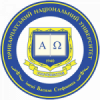Theory of Polar Oppositions in the Analysis of Educational Context
DOI:
https://doi.org/10.15330/jpnu.10.3.39-47Keywords:
polar oppositions, unit, generativity, educationAbstract
We live in a social context characterized by strong polarizations. This reality pervades discourses in the fields of politics, religion, social economic and even educational life. This article suggests Romano Guardini's theory of polar oppositions as a possible application in education. The reflection dialogues with the thought of Pope Francis who advances with the elaboration of four principles related to the bipolar tensions for the construction of a people in peace and fraternity: (a) time is superior to space; (b) unity overcomes conflict; (c) the reality is more important than the idea; (d) the whole is greater than the parts. Pope Francis in his numerous speeches addressed to the world of education highlights some aspects that are now are in opposition and contradict each other. Through the application of the Atlas.ti analysis method we were able to analyze the main contrasting concepts. Some antinomies emerge which can find creative and fruitful ways out through some concrete educational proposals. Three pairs of opposites present themselves: formal and non-formal education; the education offered by the contexts of the center and those of the periphery; the global dimension and the need for proximity. These oppositions find in the "living concrete" a possible way out of greater creativity due to the application of the principles of discernment that order the system of extreme polarities.







